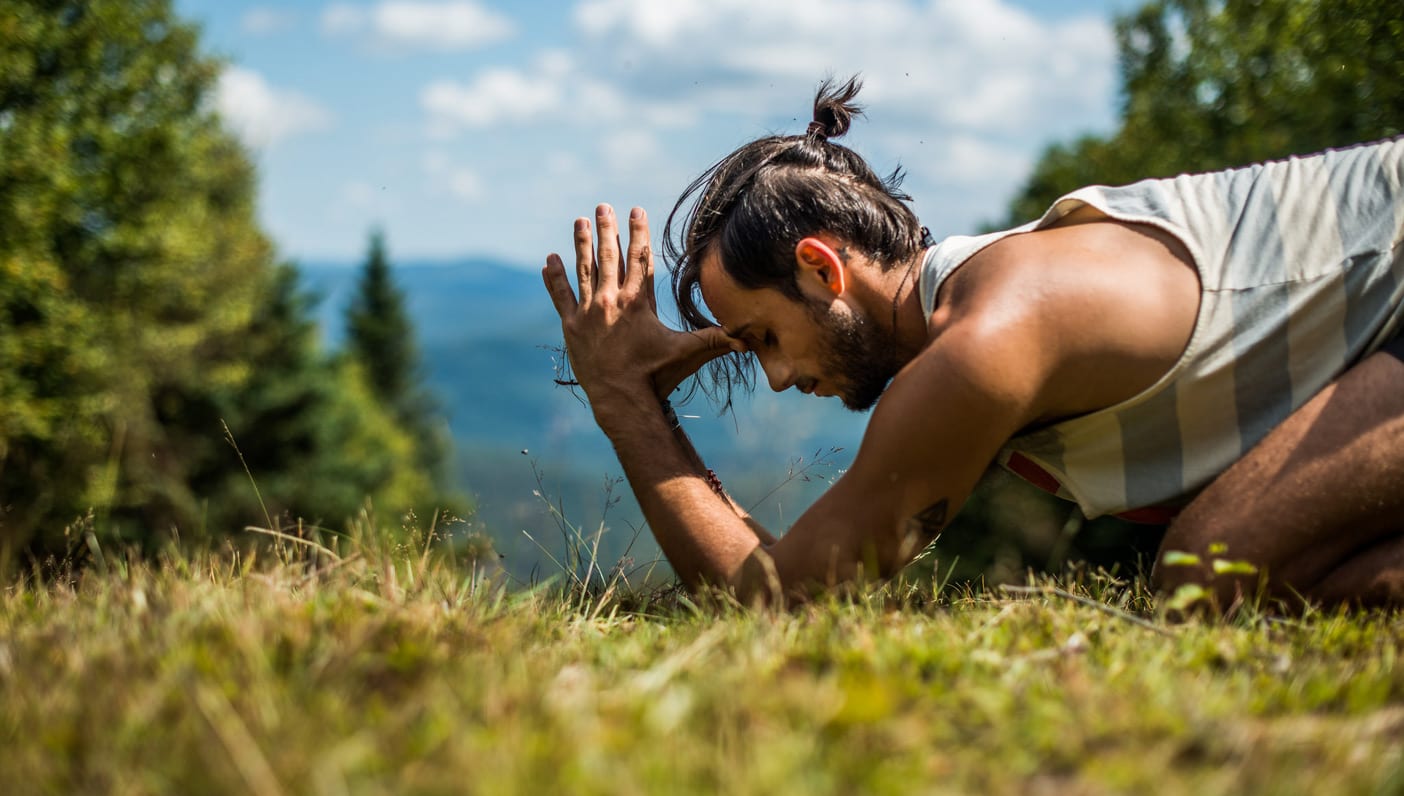
We believe that companies can commit to a higher standard for ourselves, our community, and our planet, and are proud to join the revolutionary and growing community of Certified B Corporations.
Learn more about our B Corp certification here → wanderlust.com/b-corporation
Our planet is arguably our most precious resource. Earth provides us with water to drink, plants for food, soil for growth, and air for the breath. Without Mother Nature, we’d have nothing.
So why is it so hard for us to treat the planet with respect? Convenience is not a solid argument—it’s time to look at the long-term ramifications. To do this, we can look at Ahimsa.
In Sanskrit, Ahimsa means non-violence, or the principle of protecting all living things. The word in today’s context can be understood as treating others well, being there for people in need, responding calmly in stressful situations, and saying things that move actions forward.
We can take Ahimsa to another level by practicing non-violence to our planet, and making it an effort to leave our planet better than we found it. Unfortunately, there are so many things ingrained into popular culture that harm the earth. Using harsh cleaning chemicals, like bleach, pollutes our water streams. Throwing our food waste in the garbage contributes significantly to climate change (compost it instead!). Consuming more than we need takes up our precious resources. Gardening with chemical fertilizers kills life in the soil.
Treating the planet should be a top priority. Below are ways to practically apply ahimsa to the way you care for the planet.
1. Support the Organic and Local Movements
Eating organic food has a huge impact on the health of the planet. This helps to keep pesticides out of the soil and water streams, reducing our air pollution. Buying locally means we spend less money and create less pollution in the food-shipping processes. Buying all-natural cleaning products also makes a big difference in keeping pollutants out of the home, helping you and your family stay your healthiest selves. By putting organic items in demand, we show the food and household industries that taking care of the planet is a top priority.
2. Garden Mindfully
Use organic potting soil or potting soil made with organic materials to keep the earth healthy and our food system healthy. Use organic seeds when gardening. Conventional seeds are treated with chemical fertilizers and chemical pesticides, and can wreak havoc on the earth.
In addition, the world’s bee colony is dying, as they are collecting pollen from flowers that have been treated with pesticides. Buying and planting organic seeds and using organic growing methods can keep the bee population alive and eliminate harsh pesticides and chemicals from getting into our systems.
3. Strive to Eliminate Waste
We can also make a huge difference by keeping our food waste out of the garbage and collecting our food scraps for composting. At the end of every meal, you can place your leftover food and all of the food scraps into a brown paper bag. Store the bag in your refrigerator and visit a local Farmer’s Market or composting station, where you can place your food waste in their food scrap bins. Some places even collect compost directly from your home. Compost enriches soil fertility and helps build the beneficial soil life that is need for healthy crops to grow.
Also make an effort to see where you can ditch plastic. Buy reusable containers as opposed to disposable baggies. Explore efforts within the Zero Waste movement.
Your efforts make a difference when it comes to the health of the Earth. If you want to inspire change, make conscious choices and practice the principles of ahimsa. Protect the planet—it’s the only one we’ve got.
—
 Michael Forman is a native of Bronx, New York, and although he has lived in New York City for almost his entire life, he thoroughly enjoys peace and quiet. He is the Executive Farm Director of Pure Love Organic Farms, an organic, urban farm that he and three other friends created in 2012 from a former garbage dump site. Michael also designed the farm at the Woodstock Farm Animal Sanctuary and is committed to shifting the health of the planet through his Farm Design business, Pure Love Sustainability Inc.
Michael Forman is a native of Bronx, New York, and although he has lived in New York City for almost his entire life, he thoroughly enjoys peace and quiet. He is the Executive Farm Director of Pure Love Organic Farms, an organic, urban farm that he and three other friends created in 2012 from a former garbage dump site. Michael also designed the farm at the Woodstock Farm Animal Sanctuary and is committed to shifting the health of the planet through his Farm Design business, Pure Love Sustainability Inc.